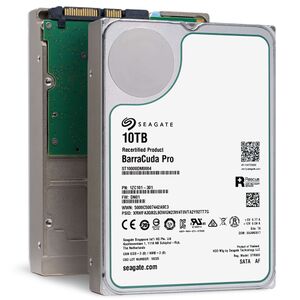We are still actively working on the spam issue.
Difference between revisions of "Home Server/Hard Drive Recommendations"
m |
(Added to category "Hardware".) |
||
| Line 21: | Line 21: | ||
==See Also== | ==See Also== | ||
* [[Storage_devices]] | * [[Storage_devices]] | ||
| + | |||
| + | [[Category:Hardware]] | ||
Latest revision as of 15:45, 26 February 2024
Generally speaking, it's best to buy the cheapest possible TB/$ drives you can buy while aiming to build redundancy and backups into your storage plan. What does this mean in practice? Used drives from Ebay!
Used hard drives are great because you can fill your server for cheap and, thanks to the wonders of RAID, if a drive fails you just slap a new one in. Then over time you can replace these used drives with brand new high-quality ones as your budget allows.
When shopping for used drives on Ebay, look for reputable e-waste recyclers. They tend to at least have standards and won't sell you a blatantly dead drive.
Amazon is a great place to buy used hard drives because sellers often offer at least year-long warranties in addition to Amazon's 30-day return policy.
It's much better to have a 5% AFR (Annual Failure Rate) of the drives in a RAID6/RAID10/RAIDz2 array than it is to have a 0.1% AFR for a RAID5/RAIDz1 array. Just remember, the proper RAID level combined with 3-2-1 backups means you will never lose your data.
NAS Drives
Hard drive manufacturers sell drives branded for usage in NAS systems but these drives come off the exact same production line as every other drive. What sets them apart from other drives is that their firmware has been tweaked to optimize performance in a NAS. This is mostly insignificant for a typical homelab consooomer. Don't get conned into thinking you need a NAS drive for your NAS.
